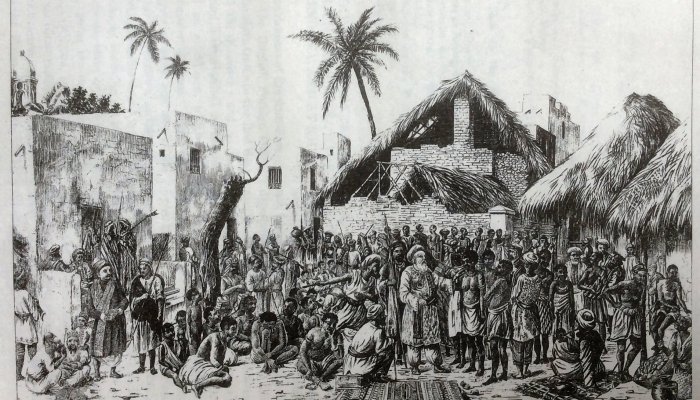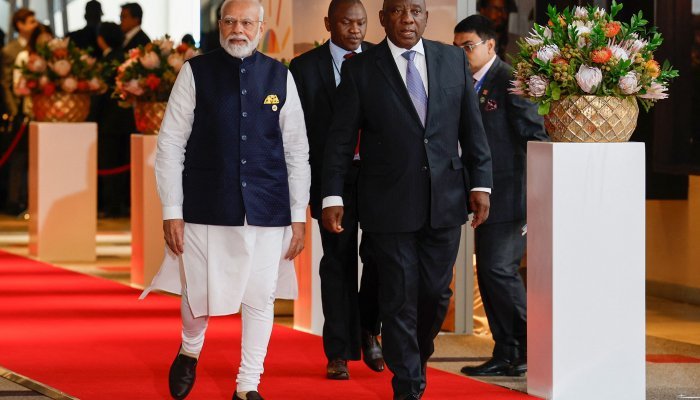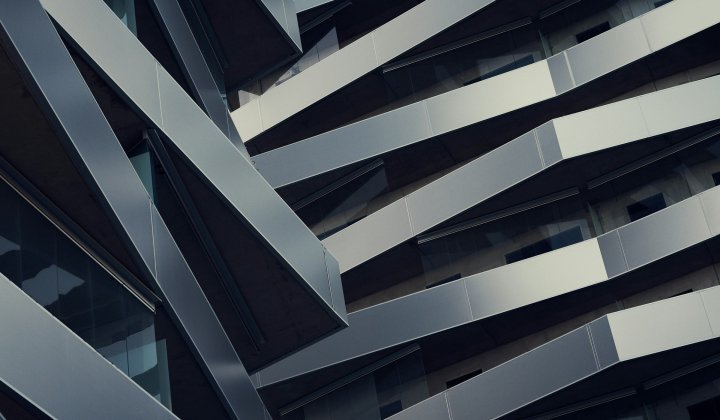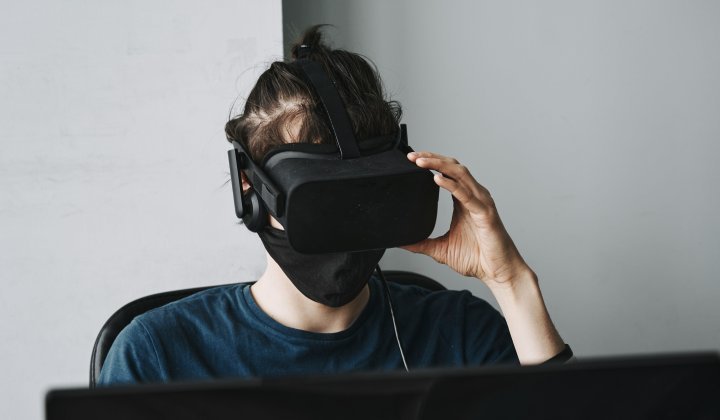Economic growth and shared prosperity are now at the top of the agenda for India and South Africa. “The governments of our two nations share similar outlooks, as well as a sense of equality, justice, and fairness. Now the time has come to rekindle a new relationship and not only talk about the past, but to build for the future,” India’s High Commissioner to South Africa, Prabhat Kumar, said in an interview.
Partnerships, such as those established through Brics and the IBSA trilateral forum, provide important opportunities to participating countries to strengthen alliances, allowing them to access technology and trade partners.
“Now, growth is the only conversation, and for that we need international collaboration,” Kumar said. He added that South Africa is “growth-hungry” with the potential for partnerships.
Bilateral and trilateral relations
Several bilateral agreements have been concluded between South Africa and India since the assumption of diplomatic relations in 1993, ranging from economic and commercial cooperation, defence, culture, health, human settlements, public administration, and science and technology.
Overall, relations between the countries are at an all-time high thanks to diverse political and economic engagements and the inclusion of the African Union as a full member of the G20 during India’s presidency of the organisation.
India and South Africa participate in a number of international forums, where they represent the interests of their developing nations. The most familiar of these partnerships are the Brics collective and the G20.
· G20
As chair of the world’s premier global economic governance forum from December 2022 until September 2023, India was able to place agenda items concerning the developing world front and centre.
This shift in leadership meant issues discussed at the G20 have reflected a human-centric development approach that aligns with the concerns of the Global South, including addressing climate change, food security, and debt restructuring, through the G20’s Common Framework for Debt.
Leadership has since passed to Brazil, while South Africa will succeed Brazil as G20 chair in 2025.
The G20 represents around 85% of global GDP and 75% of global trade and remains a place where consensus can be forged on critical global economic governance issues.
The African Union (AU) was made a permanent member of the G20 in September 2023, under India’s G20 presidency, giving the organisation the same status as the European Union.
Prior to the AU joining the bloc, South Africa was the only African country to have a seat at the table. The United Nations welcomed the move, saying in a statement, “This is a reflection of Africa’s growing influence and importance on the global stage.”
India’s Prime Minister Narendra Modi also welcomed the AU to the G20: “We are honoured to welcome the African Union as a permanent member of the G20 family. This will strengthen the G20 and also strengthen the voice of the Global South.”
· Brics
The leaders of Brazil, Russia, India, and China met for the first time as a collective in St Petersburg, Russia, prior to the G8 Outreach Summit in July 2006. South Africa was subsequently accepted as a full member at the Bric foreign ministers’ meeting in New York in September 2010.
Brics nations currently comprise approximately 41% of the world’s population, 24% of the world’s GDP, and over 16% of the world’s trade, based on 2019 figures from The World Bank.
What was originally conceived as an organisation for economic cooperation, commercial relations among the Brics nations have thrived since its inception, and the alliance has begun to advocate for a more inclusive and equitable global political system, signalling that old twentieth-century institutions must change.
According to the research paper Strengthening India-South Africa Relations in the Backdrop of Brics: Exploring Future Collaborations by Howard University, “Membership in the Brics alliance has strengthened the relationship between South Africa and India, creating a platform to fortify bilateral ties and investigate prospects for mutual development.”
While South Africa’s size, population, and economy are comparatively small when measured against the other Brics countries, it is “considered the voice of the continent at various international forums,” while the country’s “vast natural resources such as gold, diamonds and platinum, its excellent infrastructure, its established corporate footprints, a culture of innovation, easy access to finance for business, a stable macro and micro financial climate, an advanced banking system, and functioning regulatory frameworks” lend it weight in the global arena, according to Gateway House, the Indian Council on Global Relations.
The multilateral group will expand further as Argentina, Egypt, Ethiopia, Iran, Saudi Arabia, and the United Arab Emirates join the association in 2024.
· IBSA trilateral forum
Prior to the establishment of the Brics alliance, India, Brazil, and South Africa created their own trilateral consultation mechanism, the IBSA Dialogue Forum, which focuses on social, economic, and political issues.
Established and formalised in June 2003, the IBSA grouping represents the three large democracies and major economies from different continents. The group’s ideology is based on the pillars of political coordination, trilateral cooperation, and support for other developing countries.
IBSA is first and foremost intended as an alliance for consultation and co-ordination on global and regional political issues, such as climate change, as well as the reform of the global institutions of political and economic governance.
Secondly, the group emphasises trilateral collaboration on concrete areas and projects. It also aims to assist other developing countries by embarking on projects through the IBSA Fund. According to the organisation’s website, “IBSA’s success demonstrates, most vividly, the desirability and feasibility of South-South co-operation.”
· UN Security Council
Global demands to overhaul the UN Security Council by increasing the number of both permanent and non-permanent representatives are closely linked to enhancing its legitimacy and giving voice to the developing world.
India is one of the long-standing candidates to a permanent seat, while South Africa is one of the two leading African candidates for permanent membership.
“The impulse for reform is understandable,” according to the Carnegie Endowment for International Peace. Nearly eight decades after its creation, the Security Council retains the same five permanent members — China, France, Russia, the United Kingdom, and the United States.
As the world’s premier body for international peace and security, the council’s composition has expanded only once, in 1965, while the UN’s overall membership nearly quadrupled from 51 to 193 member states due to decolonisation and the dissolution of multi-ethnic states.
“Restoring the council, critics contend, requires updating its anachronistic composition and unfair decision-making rules to better reflect ongoing shifts in global power and emerging centres of moral authority,” according to Carnegie’s paper UN Security Council Reform: What the World Thinks.
“The Security Council’s composition is particularly archaic and unjust from the vantage point of Africa. The continent occupies most of the council’s substantive agenda and hosts the vast majority of UN peacekeeping operations, yet it lacks a single permanent seat to shape council deliberations.” India has been the largest troop contributor to these peacekeeping missions.
Towards a united partnership
The partnership between South Africa and India holds great potential for both countries, offering growth, prosperity, and global influence.
Strong historical political ties, coupled with mutually beneficial trade agreements, promise benefit for the people of India and South Africa. By working together, these two formidable powers can further the global interests of developing nations.
South Africa and India’s shared colonial history and struggle for freedom
South Africa and India share a close historical bond, forged through shared experience as former British colonies and aided by India’s opposition to South Africa’s apartheid government.
- South Africa has a large Indian diaspora, many of whom are descendants of indentured workers who were brought to the country by the British to work as agricultural labourers on the sugar-cane plantations in the Natal Colony between 1860 and 1911.
- Later, these workers were joined by free emigrants, largely a community of traders who hailed primarily from Gujarat in the West of India.
- According to the World Economic Forum, South Africa is home to the largest population of people of Indian descent in Africa.
- Indian independence leader Mahatma Gandhi arrived in South Africa in 1893. While working as a lawyer he led the Satyagraha movement in the country, which advocated for nonviolence and civil disobedience against oppression.
- India was the first country to sever trade relations with the South African apartheid government in 1946. India imposed a comprehensive embargo on South Africa, which impacted diplomatic, commercial, cultural, and sports activities.
- Relations between the two countries were restored with the opening of the Indian Cultural Centre in Johannesburg in May 1993.
- The Indian High Commission in Pretoria opened a year later in May 1994, followed by the Consulate General in Durban.







